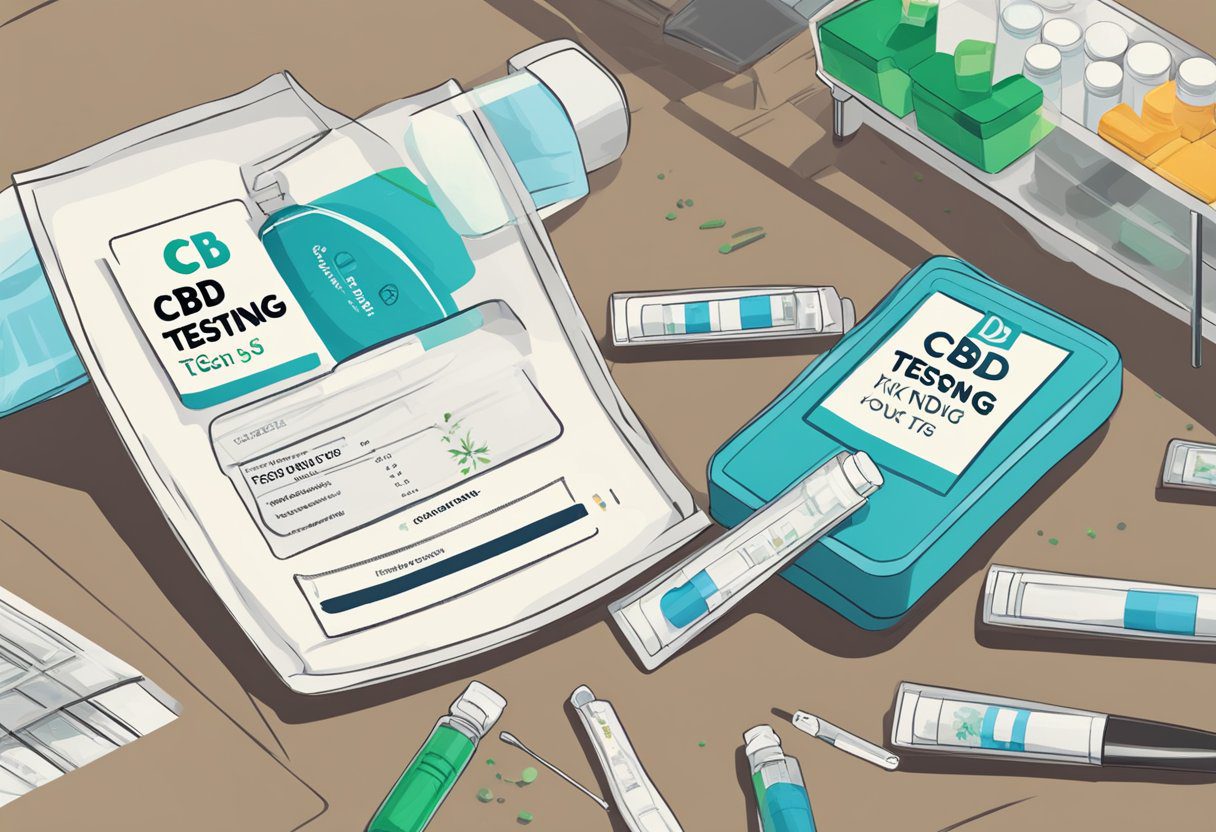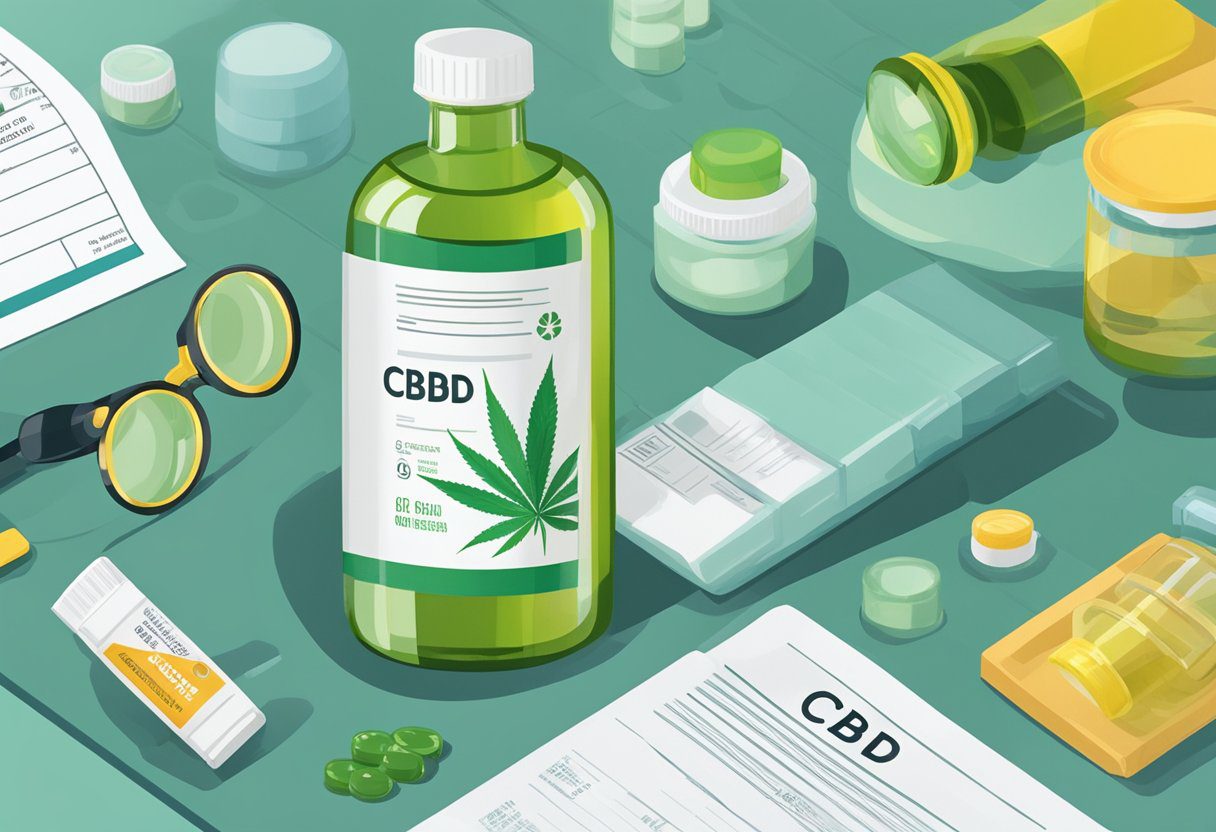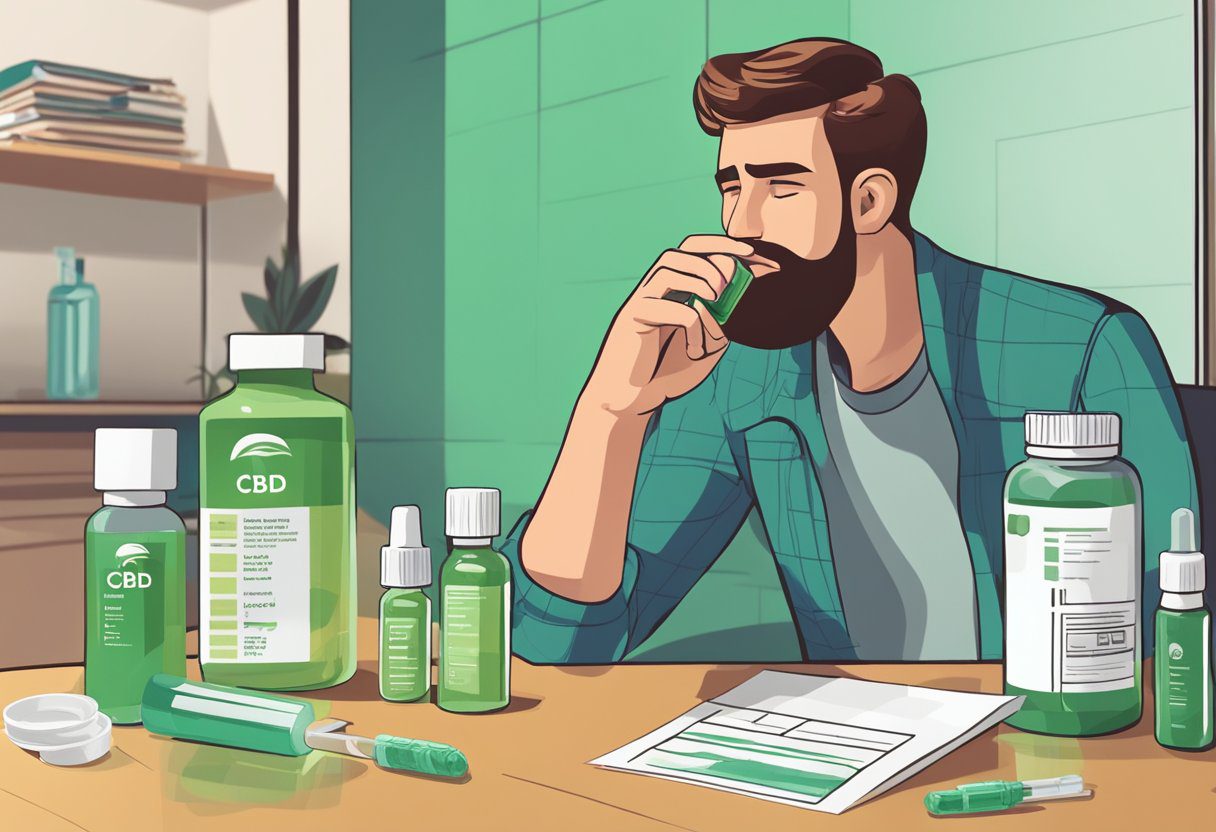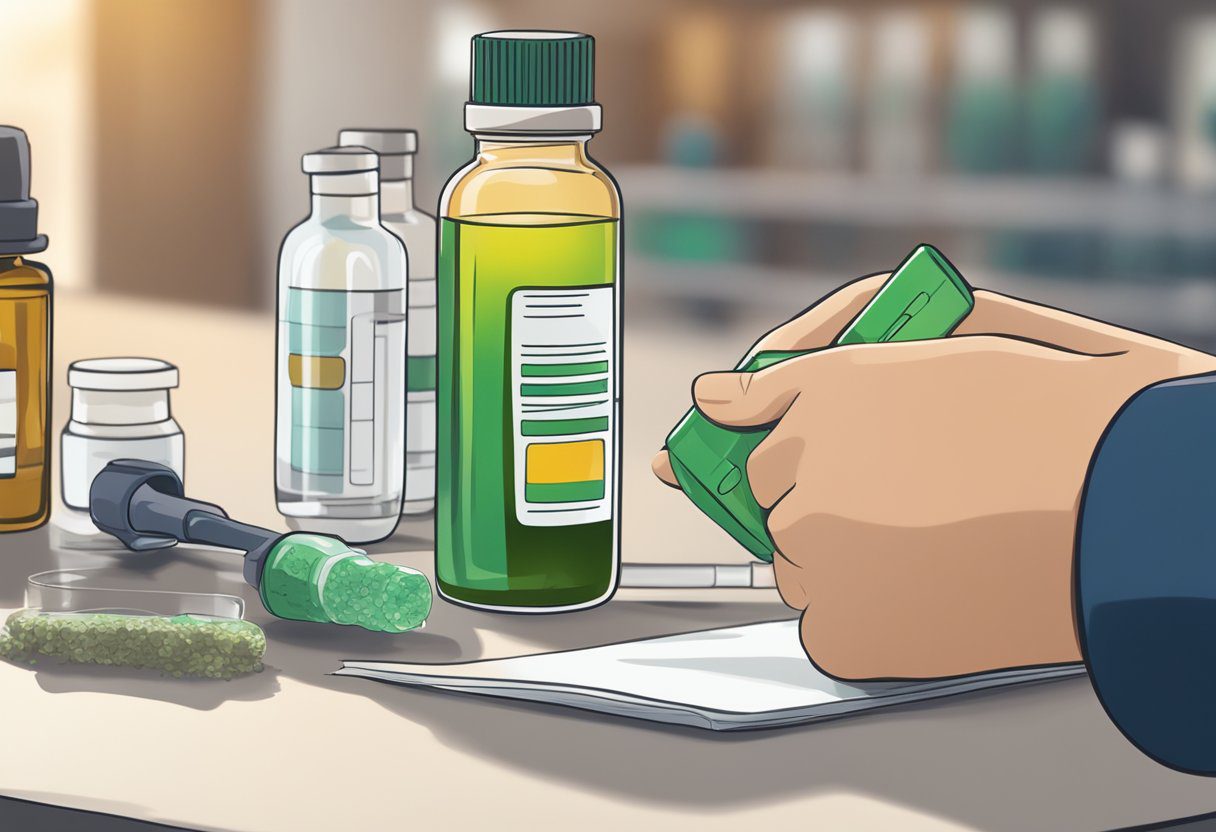CBD and Drug Testing: A Comprehensive Guide
CBD, or cannabidiol, is a compound found in the cannabis plant that has gained popularity in recent years due to its potential health benefits. However, concerns have been raised about whether or not CBD usage can result in a positive drug test. This article aims to provide a comprehensive overview of what you should know about CBD and drug testing.
It is important to understand the difference between CBD and THC, the psychoactive compound in cannabis that causes a “high” sensation. While THC is typically tested for in drug screenings, CBD is not. However, some CBD products may contain trace amounts of THC, which could potentially result in a positive drug test. This article will explore the factors that can impact drug test results when using CBD products.
Overall, the use of CBD products is becoming increasingly common, and it is important to understand the implications of CBD usage when it comes to drug testing. This article will provide insights into the key considerations and potential risks associated with CBD usage and drug testing.
Key Takeaways
- CBD usage may result in a positive drug test if the product contains trace amounts of THC
- Employers may have varying policies regarding CBD usage in the workplace
- It is important to carefully consider the potential legal and health implications of CBD usage before incorporating it into your routine.
Contents
- 1 Understanding CBD and Cannabinoids
- 2 How Drug Testing Works
- 3 CBD and Drug Test Considerations
- 4 CBD Usage and Workplace Policies
- 5 Legal Implications and Regulations
- 6 Health Considerations When Using CBD
- 7 Frequently Asked Questions
- 7.1 Can the use of CBD oil result in a positive outcome on a military drug test in the UK?
- 7.2 Is there a risk of failing an employer's drug test due to CBD consumption?
- 7.3 Will the application of CBD lotion be detected in a drug screening?
- 7.4 For how long can CBD be detected in your system during a urine analysis?
- 7.5 Could the use of hemp seed oil lead to a failed drug test?
Understanding CBD and Cannabinoids
The Basics of CBD and Cannabis
Cannabis is a plant that contains over 100 different compounds, including cannabinoids, terpenes, and flavonoids. The two most well-known cannabinoids are tetrahydrocannabinol (THC) and cannabidiol (CBD). THC is the psychoactive compound that produces the “high” associated with marijuana, while CBD is non-psychoactive and does not produce a high.
CBD is derived from the cannabis plant, but it can also be extracted from hemp, a variety of cannabis that contains less than 0.3% THC. CBD can be isolated from other cannabinoids and used in products such as CBD oil, or it can be used in full-spectrum or broad-spectrum hemp-derived CBD products. Full-spectrum products contain all the compounds found in the cannabis plant, including THC, while broad-spectrum products contain all the compounds except for THC.
Different Types of CBD Products
CBD can be found in a variety of products, including tinctures, edibles, gummies, drinks, cosmetics, vaping products, and topical creams. Tinctures are a popular way to consume CBD, as they are easy to use and can be added to food or drinks. Edibles, gummies, and drinks are also popular, as they are discreet and provide a tasty way to consume CBD.
Cosmetics containing CBD are becoming increasingly popular, as they are believed to have anti-inflammatory properties that can help with skin conditions such as acne and eczema. Vaping products are also available, but it is important to note that there are concerns about the safety of vaping.
Legal Status of CBD and Cannabis
CBD is legal in the UK as long as it is derived from hemp and contains less than 0.2% THC. Cannabis, on the other hand, is a Class B drug and is illegal to possess, supply, or produce. However, there are exceptions for medical use, and cannabis-based medicines can be prescribed by a doctor.
It is important to note that drug tests check for THC, not CBD. While it is possible for a full-spectrum product to contain enough THC to result in a positive drug test, it is unlikely with hemp-derived CBD products. However, it is always a good idea to check with a healthcare professional before using any CBD products, especially if you are subject to drug testing.
How Drug Testing Works
Drug testing is a common practice in many workplaces and industries, particularly those that require safety-sensitive positions. Drug tests are designed to detect the presence of illicit drugs or prescription medications that can impair an individual’s ability to function properly. In this section, we will discuss the common types of drug tests, the detection of THC in drug tests, and the factors that can influence drug test results.
Common Types of Drug Tests
There are several types of drug tests that are commonly used, including urine tests, hair tests, saliva tests, and blood tests. Urine tests are the most common type of drug test and are often used in workplace drug testing programs. Hair tests are also commonly used, as they can detect drug use over a longer period of time than urine tests. Saliva tests and blood tests are less common but may be used in certain situations.
The Detection of THC in Drug Tests
Drug tests are designed to detect the presence of THC, the psychoactive compound found in cannabis, in an individual’s system. THC is metabolized by the liver into a compound called THC-COOH, which can be detected in urine, hair, saliva, and blood samples. Most drug tests are designed to detect THC-COOH at a concentration of 50 nanograms per milliliter (ng/mL) or higher.
Factors Influencing Drug Test Results
Several factors can influence drug test results, including the type of drug test used, the sensitivity of the test, the amount and frequency of drug use, and the individual’s metabolism. False positives can occur if there is contamination or cross-contamination of the sample, or if the individual has been exposed to secondhand smoke or other sources of THC. It is important to note that CBD products can contain trace amounts of THC, which may result in a positive drug test. However, most drug tests are not designed to detect CBD, so it is unlikely to cause a positive result on its own.
Overall, drug testing is an important tool for maintaining safety in the workplace. It is important for individuals to be aware of the types of drug tests that may be used, the detection of THC in drug tests, and the factors that can influence drug test results. By understanding these factors, individuals can take steps to avoid false positives and ensure that they are able to perform their jobs safely and effectively.
CBD and Drug Test Considerations
When considering using CBD products, it’s important to understand the potential risk of testing positive on a drug test. While CBD itself is not typically tested for, some CBD products may contain trace amounts of THC, which could result in a false positive on a drug test.
Risk of Testing Positive from CBD Use
CBD products come in different forms, including full-spectrum CBD, broad-spectrum CBD, and CBD isolate. Full-spectrum CBD products contain all the compounds found in the hemp plant, including trace amounts of THC. Broad-spectrum CBD products contain all the compounds found in the hemp plant except for THC. CBD isolate products contain only CBD.
If you are regularly tested for drugs, it is best to use CBD isolate products, as they contain no THC. However, if you choose to use full-spectrum or broad-spectrum CBD products, it’s important to be aware of the potential risk of testing positive on a drug test.
Understanding Trace Amounts of THC in CBD Products
Some CBD products may contain trace amounts of THC, which is the compound that drug tests typically screen for. The amount of THC in a CBD product can vary depending on the type of product and how it was produced.
It’s important to note that even trace amounts of THC can accumulate in the body over time, potentially leading to a positive drug test result. Therefore, it’s crucial to use CBD products from reputable manufacturers that conduct third-party testing and provide a certificate of analysis to ensure the product contains no more than the legal limit of THC.
The Role of Third-Party Testing
Third-party testing is an essential aspect of ensuring the safety and quality of CBD products. Reputable manufacturers will typically provide a certificate of analysis for their products, which verifies the product’s contents and confirms that it contains no more than the legal limit of THC.
Mislabeling and inaccurate labelling are common issues in the CBD industry. Therefore, it’s crucial to choose CBD products from manufacturers that prioritize quality and transparency and conduct third-party testing to ensure the product’s safety and quality.
In summary, while CBD products are generally safe, it’s important to be aware of the potential risk of testing positive on a drug test when using certain types of CBD products. By choosing CBD isolate products or using full-spectrum or broad-spectrum products from reputable manufacturers that conduct third-party testing, you can reduce the risk of a false positive on a drug test.
CBD Usage and Workplace Policies
As CBD becomes more widely accepted and available, employers need to consider how it can affect their workplace policies. This section will discuss navigating CBD’s acceptance in the workplace and communication with employers about CBD use.
The legal status of CBD in the UK is complex and constantly evolving. While CBD is legal, it is important to note that some CBD products may contain trace amounts of THC, which can show up on workplace drug tests. Employers need to be aware of this and consider how they will handle CBD use in the workplace.
Workplace drug testing is a common practice, and employers have the right to set policies on drug use. However, it is important for employers to communicate their policies clearly to their employees. If an employee is using CBD for medical reasons, they should be able to communicate this to their employer without fear of repercussions.
Communication with Employers About CBD Use
Clear communication between employers and employees is key when it comes to CBD use in the workplace. Employers should be upfront about their policies on CBD use and provide employees with information on how to use CBD safely and responsibly.
Employers should also be willing to listen to their employees’ concerns and questions about CBD use. If an employee is using CBD for medical reasons, they should be able to communicate this to their employer without fear of judgement or discrimination.
In summary, navigating CBD’s acceptance in the workplace and communicating with employers about CBD use is essential for creating a safe and productive work environment. Employers should be aware of the legal status of CBD and set clear policies on drug use, while also being open to communication with their employees about CBD use.
Legal Implications and Regulations
CBD Regulation in the Market
The CBD industry is subject to strict regulations to ensure consumer safety. In the UK, the production, sale, labelling, and marketing of CBD products are regulated to comply with legal standards and uphold consumer safety. CBD products must meet specific quality and safety requirements to ensure they are safe for consumption. The Home Office provides a resource for existing and prospective licensees who may need to apply for a license to produce and sell CBD products.
The ACMD (Advisory Council on the Misuse of Drugs) published its advice for the control of consumer CBD products in December 2021. In October 2023, the UK Government published its response, stating that it agrees in principle to all the recommendations made by the ACMD. The government also stated that it will work with relevant authorities to implement the recommendations.
Legal Considerations for CBD Consumers
CBD consumers should be aware of the legal implications of using CBD products. In the UK, CBD products must contain less than 0.2% THC (tetrahydrocannabinol) to be legal. THC is the psychoactive compound found in cannabis that produces the “high” associated with its use. CBD products that contain more than 0.2% THC are considered illegal and may result in legal consequences.
Consumers should also be aware of mislabeling and false advertising in the CBD industry. CBD products must be accurately labeled to ensure consumers know what they are consuming. Mislabeling can lead to legal consequences for manufacturers and harm consumers who may unknowingly consume a product that is not safe for consumption.
The FDA (Food and Drug Administration) in the US is responsible for regulating CBD products. However, the FDA has not approved CBD as a food additive or dietary supplement, and it is illegal to market CBD as such. The FDA has approved one CBD-based medication, Epidiolex, for the treatment of seizures associated with two rare forms of epilepsy.
Overall, consumers should be aware of the legal implications and regulations surrounding CBD products. CBD products must meet specific quality and safety requirements to ensure they are safe for consumption. Consumers should also be aware of mislabeling and false advertising in the CBD industry and only purchase products from reputable manufacturers.
Health Considerations When Using CBD
CBD has been gaining popularity as a natural remedy for various health concerns. It is considered safe for most people, but as with any supplement or medication, it is important to consider potential benefits and side effects before use.
Potential Benefits and Side Effects
CBD is known to have pain-relieving and anti-inflammatory properties, making it a popular choice for those suffering from chronic pain. It has also been found to be effective in reducing anxiety and depression symptoms. Additionally, CBD has been shown to have antipsychotic effects and may help reduce seizures in people with epilepsy.
While CBD is generally well-tolerated, it can cause side effects in some people. These can include dry mouth, dizziness, and changes in appetite and mood. It is important to note that CBD can also interact with certain medications, so it is important to consult with a healthcare professional before use.
CBD Use in Special Populations
Women who are pregnant or breastfeeding should avoid using CBD, as there is limited research on the effects of CBD on fetal and infant development. Additionally, individuals with liver disease should use caution when using CBD, as it can affect liver function.
CBD interacts with the endocannabinoid system in the body, which plays a role in regulating various bodily functions such as mood, appetite, and sleep. However, it is important to note that CBD is non-psychoactive and does not produce the “high” associated with THC.
Overall, CBD has shown promise in treating various health concerns and is generally considered safe for most people. However, it is important to consider potential side effects and consult with a healthcare professional before use, especially if taking other medications.









Leave a Reply